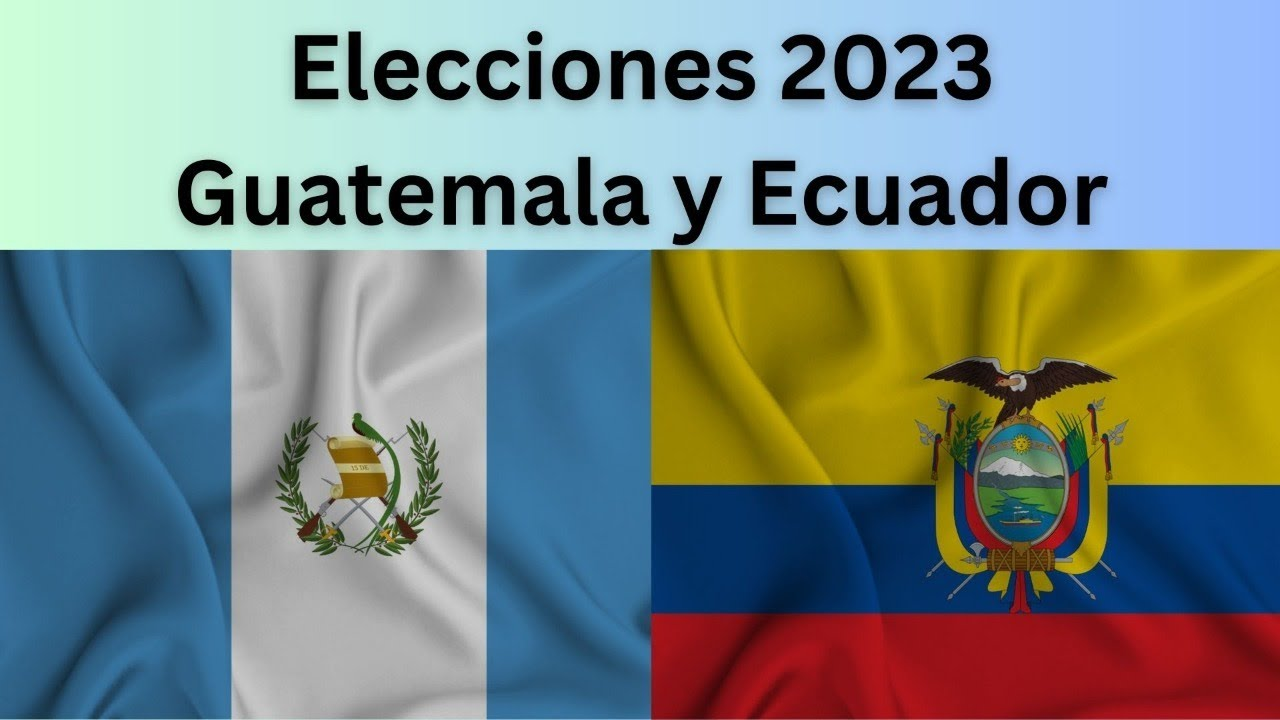
By María Josefina Arce
In an extremely complex context, two Latin American nations went to the polls this Sunday. Ecuador in early general elections and Guatemala in a presidential runoff, which had a first round last June and in which the big surprise was Bernardo Arevalo, of the Seed Movement, who managed to sneak into the appointment of this August 20.
According to preliminary results, Ecuador will go to a second electoral round on October 15, in which Luisa Gonzalez, of the Citizen Revolution movement, and the businessman Daniel Noboa, of the National Democratic Action, to whom the polls did not give him options to continue in the presidential race after this Sunday, will face each other.
Ecuadorians exercised their right to vote in the midst of a state of exception, given the high level of violence prevailing in the country, which last 9th claimed the life of presidential candidate Fernando Villavicencio, who had publicly denounced threats against him by organized crime.
In spite of the uncertainty and tension due to possible violent events, citizen participation was historic. More than eighty-two percent of the electorate went to the polls.
With the deployment of some 100 thousand police and military personnel, this day took place, in which eight candidates for the head of state were presented and in which were also appointed the 137 members of the National Assembly that will complete the current four-year term until May 2025.
The Andean nation reached these elections after President Guillermo Lasso decreed last May the so-called death cross, to avoid an impeachment trial for corruption in the National Assembly, which was aimed at his removal from office. Thus, the legislative body was dissolved and early elections were called.
On Sunday, two popular consultations were also held, a local one, only for Quito, on mining activity in the Chocó Andino natural reserve, and another national one on oil extraction in the Yasuní Park, promoted by indigenous peoples and environmental groups.
In Guatemala, uncertainty has also been a constant in the electoral panorama, given the attempts to disqualify the progressive Seed Movement and its candidate Bernardo Arévalo, a threat to the ruling elite. But if he was the surprise of the first electoral round, now the sociologist by profession was elected as the new president of the Central American nation.
Arévalo obtained an irrefutable victory, with close to 60% of the votes, while his rival Sandra Torres, of the right-wing National Unity of Hope and seen as a continuity of the current government, obtained little more than 35%.
The academic, congressional deputy and son of former president Juan José Arévalo, proposed, during his campaign, as the axis of a future government the fight against corruption and impunity that afflict the country.
His victory generates in the population a hope of change for a nation plunged for years in poverty, corruption and violence.
However, the road will not be easy for Arevalo, whose election as head of state is not viewed favorably by the political and business elite that runs Guatemala.

